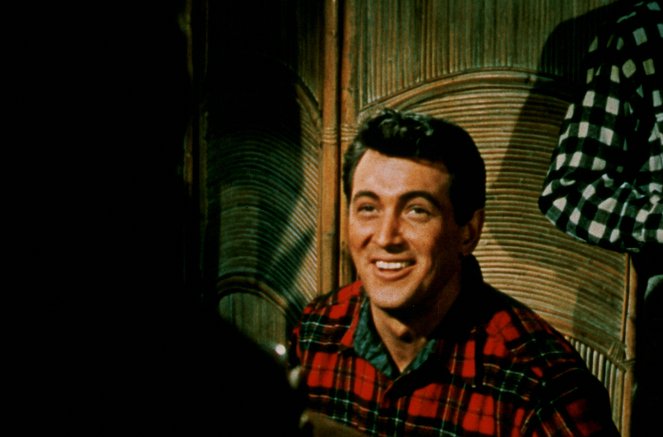Directed by:
Douglas SirkScreenplay:
Peg FenwickCinematography:
Russell MettyComposer:
Frank SkinnerCast:
Jane Wyman, Rock Hudson, Agnes Moorehead, Conrad Nagel, Virginia Grey, Gloria Talbott, William Reynolds, Charles Drake, Hayden Rorke, Leigh Snowden (more)Plots(1)
This heartbreakingly beautiful indictment of 1950s American mores by Douglas Sirk follows the blossoming love between a well-off widow (Jane Wyman) and her handsome and earthy younger gardener (Rock Hudson). When their romance prompts the scorn of her children and country club friends, she must decide whether to pursue her own happiness or carry on a lonely, hemmed-in existence for the sake of the approval of others. With the help of ace cinematographer Russell Metty, Sirk imbues nearly every shot with a vivid and distinct emotional tenor. A profoundly felt film about class and conformity in small-town America, All That Heaven Allows is a pinnacle of expressionistic Hollywood melodrama. (Criterion)
(more)Reviews (2)
At first glance, a terribly simple storyline about how a woman and a man fall in love with each other, with the only problem being that each is from a slightly different social class. Especially in her case, it would be a problem if she got involved with him. However, she realizes, in very powerful scenes, that what she wants is not actually that selfish, at least compared to what others want, whom she wants to submit to. A beautiful movie.
()
On the surface, All That Heaven Allows is schmaltz coloured like a Disney movie (with probably unintentional references to Bambi and The Old Mill), but beneath the surface it is a dark story about a woman whose emotional liberation is hindered by the primness of middle-class society. It is an altogether extremely rich experience, both emotionally and intellectually. A house in the suburbs, presented by the TV series and commercials of the time as a wonderfully idyllic place, is for the protagonist a hell from which she cannot escape. The way that television (de)formed and still deforms the social position of women is shown by the film’s probably most famous scene, when the protagonist’s reflection becomes a prisoner of the television screen that her son brought to her in the belief that his mother will no longer obstruct him on his path to success with her unseemly ideas. Her position is also reflected by other props, serving here as symbols of the conformist and consumerist life of people who close their eyes (or doors, as in the scene with the maid in the background) to social reality. Objects express what Cary, bound by convention, cannot say. Sirk conveys what is essential through those objects and through colours, lighting and camera angles, thus confirming his position as the most astute cinematic psychoanalyst of post-war American society. 85%
()


Ads